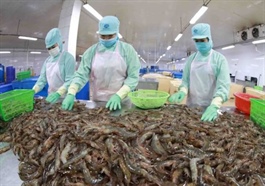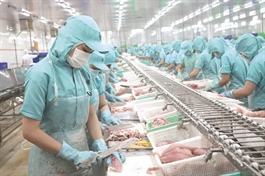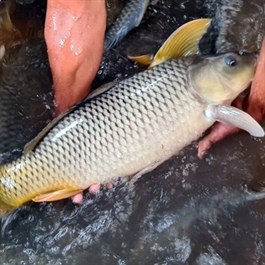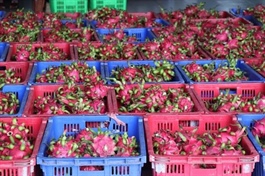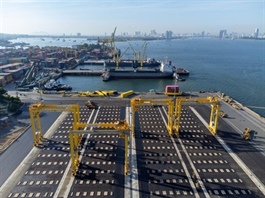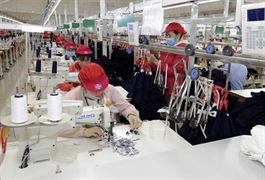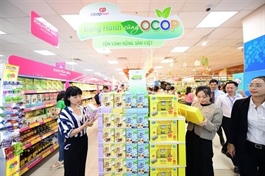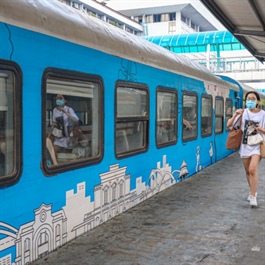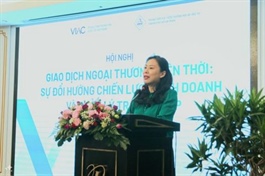VN needs to develop an ecosystem to expand into lucrative Halal market
VN needs to develop an ecosystem to expand into lucrative Halal market
It is necessary for Việt Nam to establish a Halal ecosystem on the whole production line, including services to infrastructure and the Government’s support policies, to develop a sustainable industry and expand exports to this lucrative market, experts have said.
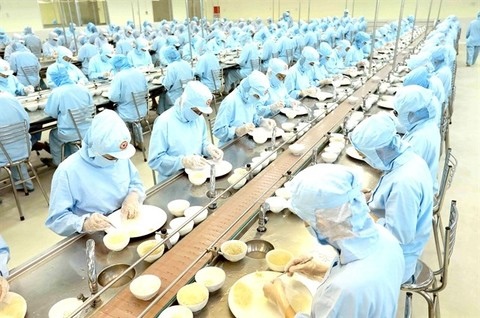
Bird's nests being processed at Khánh Hoàn Salanganes Nest Company – a product of Việt Nam that gets Halal certification. — VNA/VNS Photo Vũ Sinh |
Sharing findings about the development of Halal ecosystems around the world, Đinh Công Hoàng from the Institute for South, West Asian and African Studies, under the Việt Nam Academy of Social Sciences, said that Thailand is known as a Halal production hub.
As of April 2024, Thailand, where 8-12 per cent of the population is Muslim, had 160,000 products, 33,000 brands and 14,000 companies receiving Halal certification.
Australia, where Muslims account for 2.4 per cent, has the fastest growing Halal industry in the world, with an average value of 13 billion Australian dollars (US$8.77 billion) per year.
Under the slogan, 'From farm to table' Australian leads the world in Halal meat processing, providing beef and lamp to more than 100 countries around the world.
The Halal ecosystem also helps attract an increasing number of Muslim tourists to Australia, he said.
“Việt Nam has significant opportunities to develop a Halal industry. Fisheries, fruits and vegetables, rice, coffee, tea, pepper, cashew and spices are all potential products,” Hoàng said.
New-generation free trade agreements (FTAs) with stringent markets like the EU, the US and Japan also provide an important platform for Việt Nam to access the global Halal market.
However, the fact is that few Vietnamese enterprises have good understanding of what Halal even means, the process of certification remains complicated and lacks harmonisation with international practices, he said.
It also requires huge investments in production lines, equipment and raw materials to comply with Halal standards.
For the sustainable development of the Halal industry, Việt Nam needs to establish a full ecosystem from production, service to infrastructure and the Government’s policies, said Hoàng.
It is necessary to effectively implement a national project on enhancing international cooperation to develop the Halal industry in Việt Nam and improve awareness about the potential of Halal markets, he said.
He also proposed economic diplomacy with Muslim countries to be promoted together with the signing of FTAs with potential Halal markets.
With the establishment of Việt Nam Halal Certification Authority (HALCERT), Việt Nam needs to implement standardisation, testing and Halal certification for enterprises and signs agreements on mutual recognisation of standards with Muslim counties such as Arab Saudi, Malaysia, Indonesia and Pakistan.
It is also important to establish supply chains for Halal products, he added.
According to the Việt Nam Institute of Strategy and Policy for Industry and Trade under the Ministry of Industry and Trade, Việt Nam is among top 20 in the world in food exports, but has not been in the list of top Halal food producers.
Currently, Việt Nam exports around 20 Halal products, mainly agro-fishery products with small values. Around 41 per cent of provinces and cities have not had Halal-certified products.
For the Government, it is necessary to complete the legal framework to promote the development of the Halal industry, according to the institute.
Industrial zones specialising in Halal products should be planned and developed in provinces with strength in raw materials where other services are also integrated from production, packaging to logistics, marketing and certification.
The national standard systems for Halal products must also be developed.
The strategy for Halal industry development must be based on high-tech platforms such as blockchain, e-commerce and automation to manage the supply chains to access the global Halal market more favourably.
The institution urged enterprises to improve their capacity to meet and be certified with Halal standards together with enhancing trade promotion and brand development.
In late June, the Ministry of Science and Technology proposed the development of a decree on managing Halal products and services with an aim to promote the Halal ecosystem in Việt Nam to create high added-value products for the domestic consumption and exports. That draft is being made public for comments.
The global Halal market was estimated at US$7 trillion in 2022 and is forecast to reach $10 trillion in 2028.
The total population of the global Halal markets is expected to increase from 1.94 billion in 2022 to 2.8 billion by 2050.
There are about 90,000 Muslims in Việt Nam as of June, mostly in An Giang, HCM City, Tây Ninh and Ninh Thuận.
Halal products go beyond meat or just foods. They include almost all products from food, beverages, functional products, pharmaceuticals, cosmetics, textiles, handicrafts and services such as banking, tourism, security, education and training, catering, accommodation and logistics.
The markets for Halal products are diverse from Muslim countries to non-Muslim countries and from developing to developed economies as Halal-certified products meet standards of food hygiene and safety, quality, sustainability and ethical in production and processing.



